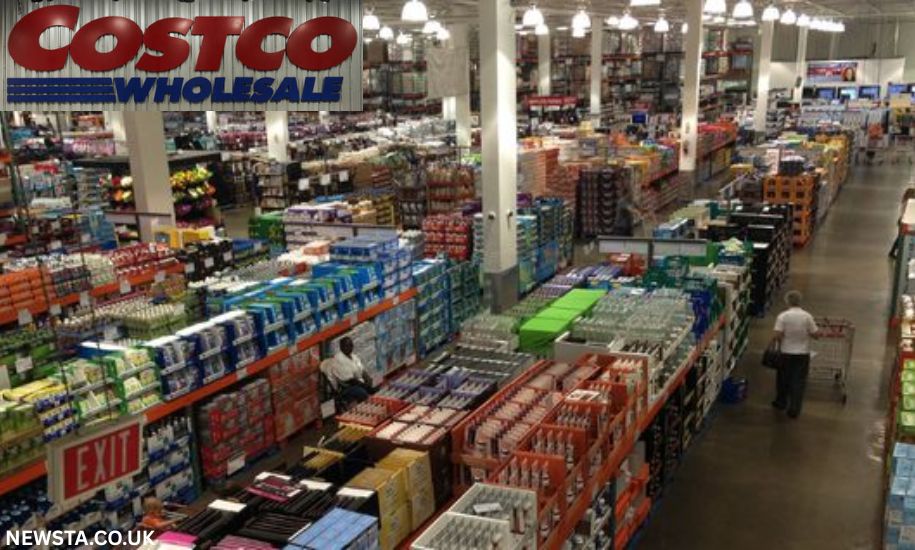Costco has long been recognized as a leader in the wholesale retail world, famous for its bulk deals, simple warehouse format, and membership-based savings. But within its massive ecosystem exists a unique concept—the Costco Business Center.
While the average shopper knows Costco for groceries, electronics, and its legendary food court, Business Centers cater to a very different audience: businesses, restaurants, and bulk buyers. Yet surprisingly, any Costco member can shop there.
This article explores the Costco Business Center in detail—what it is, how it differs from regular Costco stores, who benefits from it, what products and services it offers, and why it’s becoming an increasingly important part of Costco’s business model.
What Is a Costco Business Center?
A Costco Business Center is a specialized version of the standard Costco warehouse, designed mainly for business customers who need large quantities of goods at competitive prices. These centers focus on commercial-grade products, restaurant supplies, and office essentials, all sold in bulk.
Unlike the typical Costco warehouse, which serves both families and individuals, the Business Center model targets small businesses, restaurants, offices, and institutions that require consistent, high-volume purchasing.
However, anyone with a Costco membership—whether personal or business—can shop at a Business Center. There’s no special membership required, which makes it an excellent hidden gem for bulk-savvy consumers.
Key Differences Between a Business Center and a Regular Costco
Though both share the Costco name, the shopping experience between a Business Center and a standard warehouse is notably different. Here’s how they diverge:
| Aspect | Regular Costco Warehouse | Costco Business Center |
|---|---|---|
| Product Focus | Everyday consumer goods, electronics, clothing, furniture, and groceries | Commercial and industrial products, restaurant supplies, office essentials, janitorial goods |
| Inventory Overlap | Broad overlap between warehouses | Roughly 70% of inventory is unique to Business Centers |
| Pack Sizes | Family or household bulk sizes | Industrial quantities, often sold by the case or pallet |
| Store Design | More variety and visually appealing layouts | Streamlined warehouse setup for quick business shopping |
| Food Court & Sampling | Common in most locations | Usually absent or limited |
| Operating Hours | Opens around 10 a.m. | Opens earlier, often around 7 a.m., catering to business buyers |
| Product Variety | Electronics, clothes, décor, seasonal items | Cleaning supplies, beverages, dry goods, restaurant equipment |
| Target Audience | General consumers and families | Businesses, restaurants, and bulk purchasers |
These distinctions reveal why the Business Center model serves a different purpose. It’s not designed for a leisurely shopping trip but for efficient, large-scale purchasing.
Who Benefits Most from Costco Business Centers?
While every Costco member is welcome at a Business Center, certain groups benefit far more from what these locations offer.
1. Restaurants and Food Service Operators
Business Centers are a goldmine for restaurants, caterers, and cafés. They carry everything from bulk meats, frozen foods, condiments, and beverages to restaurant-grade kitchen supplies and disposable serving ware. For food service businesses, it’s a reliable and affordable alternative to traditional restaurant wholesalers.
2. Small Businesses and Offices
From cleaning products and coffee to snacks, paper towels, and breakroom essentials, offices and small businesses can cut costs significantly by sourcing through a Business Center. The bulk pricing structure lowers per-unit costs and simplifies restocking cycles.
3. Event Planners and Caterers
Catering companies and event planners benefit from access to large quantities of beverages, snacks, and disposable utensils at lower prices. The ability to buy everything in one place saves time and logistical headaches.
4. Convenience Store Owners
Small retailers and corner stores often use Costco Business Centers as a secondary wholesaler. Many products, especially snacks and drinks, can be resold for profit, giving local shop owners a cost-effective supply chain option.
5. Large Families and Group Shoppers
Even families can take advantage of Business Centers if they have space for storage. Products like bottled water, cleaning supplies, or paper goods are available in extreme bulk at excellent prices, perfect for long-term stockpiling.
What You’ll Find Inside: Product Categories
Costco Business Centers focus on essentials rather than luxury or lifestyle items. Their shelves are filled with high-demand goods that businesses and organizations consume regularly.
Here are the main product categories you’ll encounter:
- Beverages – soft drinks, water, juices, coffee, tea, and energy drinks in case packs.
- Snacks and Candy – ideal for vending machines, breakrooms, and resale.
- Grocery Staples – cooking oils, condiments, rice, pasta, canned goods, and bulk sauces.
- Janitorial Supplies – cleaning agents, detergents, paper products, and trash liners.
- Office Supplies – paper, pens, envelopes, toners, and other business essentials.
- Restaurant Equipment – utensils, pans, commercial-grade cookware, food containers, and disposable serving ware.
- Frozen and Fresh Meats – bulk cuts of chicken, beef, seafood, and frozen foods suitable for commercial kitchens.
Around two-thirds of these items are exclusive to the Business Center format, unavailable at regular Costco warehouses.
Delivery and Logistics: Convenience for Businesses
One of the strongest advantages of the Costco Business Center model is its Business Delivery service. In select cities, customers can place online orders for delivery directly to their business premises, often with next-day or two-day shipping.
This service is ideal for businesses that rely on steady replenishment of high-volume goods like beverages, snacks, and janitorial products. Costco’s logistics efficiency ensures reliable deliveries, often saving businesses both time and transportation costs.
Many Business Centers also feature early opening hours—some as early as 6 or 7 a.m.—allowing business owners to stock up before the start of their workday.
Pricing and Savings Structure
The pricing philosophy at Costco Business Centers mirrors the core Costco model: value through volume. The more you buy, the more you save per unit.
For example, restaurant owners buying cases of beverages, napkins, or disposable containers often pay significantly less per unit compared to standard retail or restaurant supply stores.
Even for non-business customers, these prices can be enticing if they’re willing to buy in bulk. Over time, the cost per serving or per product can add up to substantial savings.
Locations and Growth
As of 2025, Costco operates a few dozen Business Centers across the United States and several in Canada under the name “Costco Business Centre.” The majority are found in high-density markets with a strong concentration of small businesses—California, Texas, Washington, and major metro areas are key examples.
Each location is strategically positioned near industrial zones and urban hubs, where delivery routes can efficiently reach hundreds of business customers.
Although fewer in number than standard warehouses, Business Centers continue to expand steadily. New openings in both the U.S. and Canada reflect Costco’s confidence in the format’s long-term potential.
Why Costco Created the Business Center Model
Costco launched its Business Center division to tap into the lucrative business-to-business (B2B) segment, where consistency and high-volume purchasing drive profitability.
The company realized that small and medium-sized businesses, restaurants, and institutions represent a market segment often underserved by traditional wholesalers. By leveraging its buying power, Costco can offer lower prices and faster distribution than many competitors.
The Business Center model also helps diversify Costco’s revenue streams, making it less dependent on consumer trends and more integrated into business supply chains.
Tips for Shopping at a Costco Business Center
If you’re planning your first trip to a Costco Business Center, here are some practical tips to help you make the most of your experience:
- Bring Storage Space – The packaging is industrial-sized. Ensure you have room to store your purchases, especially perishable goods.
- Check Unit Prices – Don’t be scared off by high total prices. The cost per item is often far lower than retail.
- Plan Your Trip Early – Many Business Centers open earlier than standard stores, so shop early for lighter crowds.
- Understand Order Minimums – If you’re ordering for delivery, check the minimum order size or delivery fees.
- Be Prepared for Limited Variety – You won’t find clothes, books, or TVs here—it’s all business-focused inventory.
- Ask the Staff for Guidance – Employees are often experts in helping businesses select appropriate bulk options.
Following these tips can ensure that your Business Center trip is efficient and cost-effective.
Challenges and Limitations
While Costco Business Centers offer incredible value, they do come with a few drawbacks:
- Limited Locations: You may need to travel farther, as there are fewer Business Centers than regular warehouses.
- Bulk Quantities: Great for businesses, but impractical for small households.
- Narrow Product Range: Lacks variety in personal goods, décor, and electronics.
- Storage Demands: Buying in bulk means you must have sufficient space to store products safely.
- Delivery Restrictions: Some regions are not yet covered by the Business Delivery service.
Despite these limitations, the model works extremely well for its intended audience—businesses that value scale, consistency, and affordability.
Why Costco Business Centers Matter Strategically
For Costco, the Business Center format serves several strategic purposes:
- B2B Market Penetration: It deepens Costco’s reach into the business sector, capturing new revenue from commercial buyers.
- Economies of Scale: Serving large orders boosts operational efficiency and lowers distribution costs.
- Customer Loyalty: Business clients tend to be consistent, repeat buyers.
- Diversification: It protects Costco from relying solely on consumer spending trends.
- Competitive Defense: It helps Costco compete against traditional B2B wholesalers and food service suppliers.
By bridging the gap between retail and wholesale, the Business Center format strengthens Costco’s dominance in both consumer and business markets.
The Future of Costco Business Centers
Looking forward, the Costco Business Center model is likely to expand both physically and digitally. Several key trends may define its evolution:
- E-commerce Growth: Online ordering for business supplies is expected to increase, extending Costco’s reach to markets without a physical Business Center.
- Sustainability Initiatives: Expect a shift toward eco-friendly packaging and waste reduction programs.
- More Private-Label Products: Costco will likely introduce more Kirkland Signature products designed specifically for businesses and restaurants.
- New Locations: With strong performance metrics, Costco is expected to open additional Business Centers in major cities across North America.
- Integration with Regular Memberships: Costco may further streamline how members shop across both warehouse types for a seamless experience.
In an economy that increasingly values cost-efficiency and scale, the Business Center concept positions Costco as a major player in both retail and commercial procurement.
Conclusion
The Costco Business Center is a fascinating evolution of Costco’s wholesale model. It combines the company’s trademark efficiency, low prices, and membership loyalty with a tailored focus on the needs of businesses and bulk buyers.
While it may not replace the traditional Costco for everyday shoppers, it provides unmatched value for those who buy in large quantities—restaurants, offices, event organizers, and small business owners.
For Costco, this format strengthens its hold on the wholesale market and continues its legacy of innovation in retail. Whether you’re a business owner or a curious Costco member, exploring a Business Center can open your eyes to the scale and sophistication behind one of America’s most successful retail brands.
Thanks for read our article if you want more like this kind of article visit our site Buz Vista , and comment us. We provide authentic & comprehensivf information to our readers.

